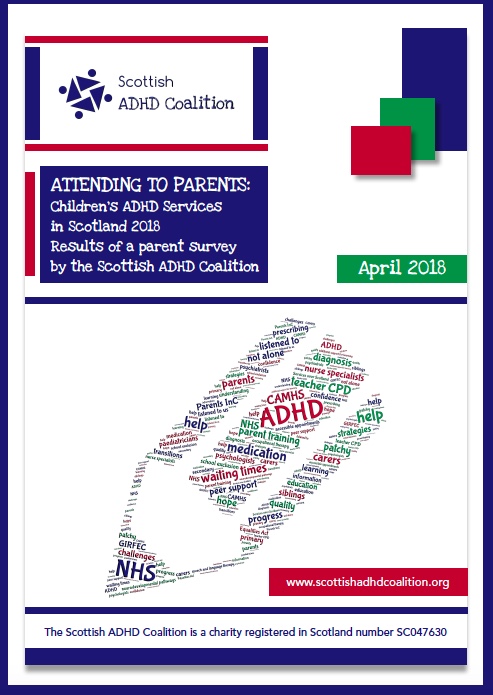Today’s debate in the Scottish parliament was opened by Daniel Johnson MSP with an inspiring speech describing the strengths which having ADHD give him as a politician, and his anger at the misinformation about ADHD which still circulates. This was the first debate about ADHD in the Parliament and is a testament to the campaigning of many organisations, including the Scottish ADHD Coalition, over the past year.
We are looking forward to a roundtable with Health Minister Maureen Watt early in the next session.

 .
. April 17th 2018 saw the publication of the results of our survey of parents about health and education services for children with ADHD across Scotland. The survey was answered by more than 200 parents of children with a confirmed diagnosis of ADHD across Scotland and paints a picture of health and education services which are excellent at best, but not consistent enough. Many health services are overly focused on medication provision as the only treatment on offer for ADHD, and teachers urgently need more training on AD.
April 17th 2018 saw the publication of the results of our survey of parents about health and education services for children with ADHD across Scotland. The survey was answered by more than 200 parents of children with a confirmed diagnosis of ADHD across Scotland and paints a picture of health and education services which are excellent at best, but not consistent enough. Many health services are overly focused on medication provision as the only treatment on offer for ADHD, and teachers urgently need more training on AD. We have just published an analysis of the latest NHS prescribing data for Scotland showing ADHD treatment rates for adults and children by Health Board.
We have just published an analysis of the latest NHS prescribing data for Scotland showing ADHD treatment rates for adults and children by Health Board.
